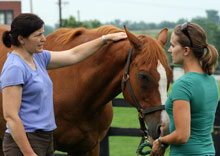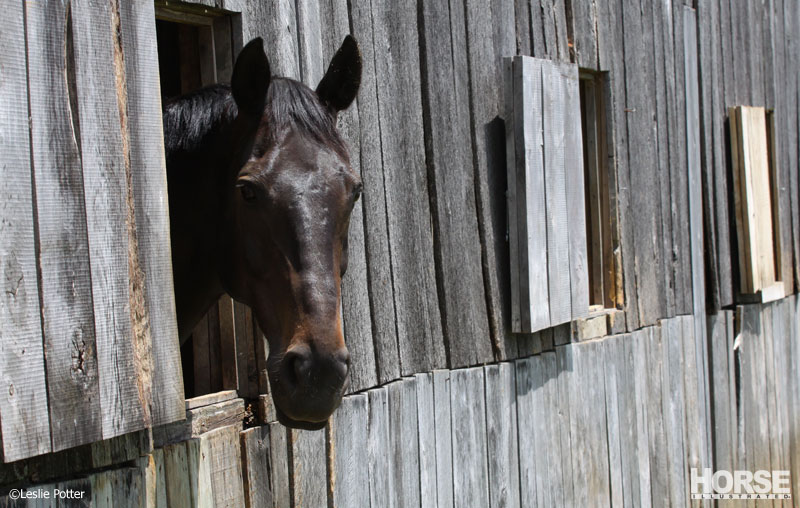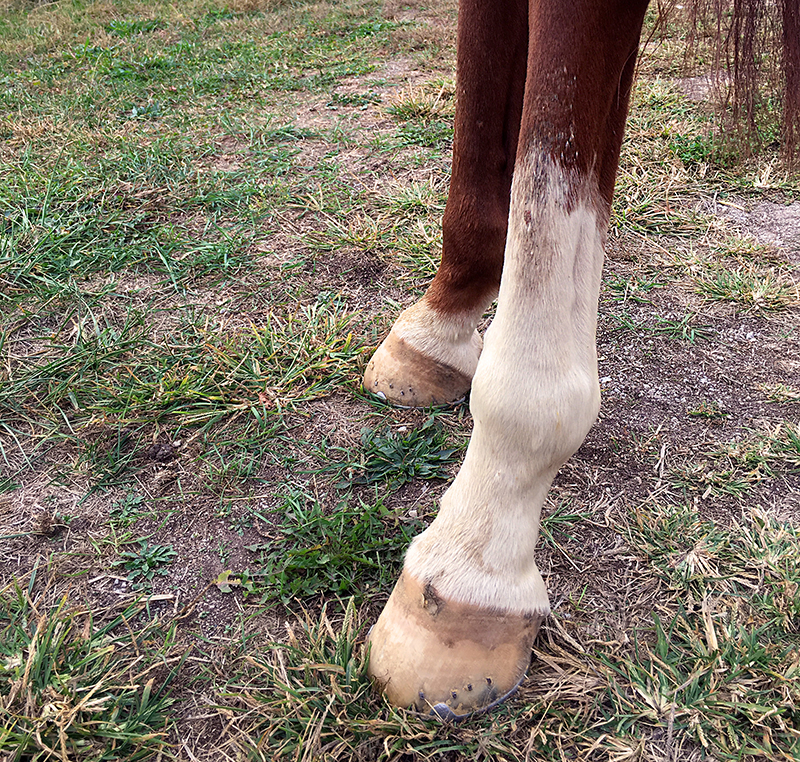 Q: I am currently in high school, and I’m interested in becoming an equine vet. What should I look for in a college program? Can I do internships or anything else now that will help me with this career later?
Q: I am currently in high school, and I’m interested in becoming an equine vet. What should I look for in a college program? Can I do internships or anything else now that will help me with this career later?
A: The two most important things when on the road to vet school are firstly, immersing yourself in a wide variety of animal/veterinary experience and secondly, doing well in school.
When it comes to what to look for in a college program, consider this: the majority of vet school students have a degree in either animal science or biology. However, there is always the student who was a pastry chef or used car salesman before going to vet school – the key is to understand that all vet schools have undergraduate course requirements consisting of a certain number of biology, chemistry, physics, microbiology, calculus, and English credit requirements. Different vet schools vary slightly in how many credits of one class or another they require, so be sure to know the most up-to-date requirements for the handful of schools you are thinking of applying to.
In your college search, find schools that offer all the prerequisite courses. While most pre-vet students obtain an undergraduate degree in the basic sciences, you don’t have to, as long as your requirements are filled. Having said that, it’s relatively simple to fulfill your pre-vet requirements as a biology major, since classes to fulfill your major and vet school prerequisite classes usually overlap. If you decide to major in say, journalism while planning to go to vet school, be prepared to take extra classes on the side.
Many large state universities have pre-vet programs and pre-vet clubs. Both of these institutions help students become familiar with that particular state’s vet school requirements. Also always have a back-up plan. The current reality of vet schools across the nation is that there is an influx of people applying that is overwhelming the actual number of spaces allowed for incoming freshman classes. Competition is tough and many students are second or third time applicants. This translates into the following: if you aren’t accepted the first time around DO NOT give up, but instead re-apply the next year. Think about it this way: if you’ve got a degree in biology or animal science, can you make a career of this while you’re waiting to get into vet school?
The other side of the coin is gaining animal experience. Just having horses at home isn’t enough animal experience for vet school, just like having a pet dog isn’t enough. This is where you need to be proactive. Call local veterinary clinics and ask if you can come in on Saturdays to observe the veterinarians perform exams and surgery. Use your summer vacations to work at vet clinics as a kennel worker, dog walker, barn hand or veterinary assistant. Talk to your equine vet and see if you can come for regular ride-alongs in the truck. This gives great experience that vet schools love to see, but also gives you a first-hand account of what it’s REALLY like to be a vet.
Other ways to gain valuable animal experience include volunteering at a local animal shelter, or getting involved in the local 4-H club. Remember that a range of experience is just as important as the amount of experience. Just because you may want to only be an equine vet, you’ll still have to take cat and dog and cow classes in vet school.
One other tip: during these pre-vet years, keep a journal of all your animal/vet experience. Record what you’re doing, what you’re learning, and most importantly, how many hours you are spending doing these activities. The vet school application process requires you to state how many hours of each activity you have done and this is an easy way to keep record of accurate numbers. Good luck!
Ask your horse health questions on the horseillustrated.com Forums >>
See more Expert Q&As >>
Submit your Ask the Expert question >>





Interesting because i want to be an equine vet too!
This is also really helpful to me, since I want to be an equine vet as well 🙂 I’ve just started my college search, and I hope to shadow or work at a vet clinic or two this summer. Thanks for the information!
Thank you so much for putting this up! Because I am considering being an equine vet tech!
Thanks for this. It was very useful.
This is great advice. I wish I had had the chance to be a vet.
That was my goal to be come a vet, but never really had the chance.
I just finished a veterinary technician program, and now i want to go to vet school. This was very helpful
i could not stand putting horses to sleep even if it was the right thing to do i jut could never bring myself to do it! but i do love helping horses recover!:)
I feel the same way!